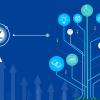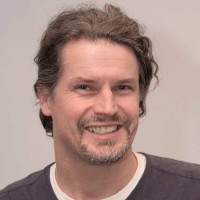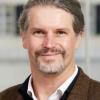
Options Magazine, Summer 2021: Michael Kuhn was appointed program director of the newly established IIASA Economic Frontiers Program in January 2021.
 © Barbara Simunics | VID
© Barbara Simunics | VID
Q. What is your area of research?
A. As a young and idealistic student, I discovered that economic thinking – if applied in the right way – may be a powerful tool in changing the world for the better. In my research, I use economic theory to study policy issues at the interface of health, population, and economic development. The fundamental question is: How can we transform towards a sustainable society when placing human wellbeing at the center?
Q. What are the big issues in your field?
A. Human capital modeling looks at economic growth as a result of individuals’ efforts to improve themselves. A good education and good health are regarded as investments that lead to economic returns for both the individual and society. In other words, if I invest in better education and better health, I can get a better job, earn more money, and live and work longer, but by working more productively and being more informed in my private choices, I also contribute to the economy and society as a whole.
There are two large challenges to these beneficial processes. First, there has been vast, and in some places rising inequality in the opportunity for people to undertake investments in their human capital. Too many are disadvantaged from early on and never have the chance to set their lives on a good trajectory, but this also leaves their own communities and local economies trapped without access to the virtuous cycle. Second, climate change is a threat to human capital. For example, severe weather such as extreme heat can impact personal productivity and lower life expectancy. With bleak prospects caused by climate change, what is the incentive to invest in education or health? The Friday4Futures movement shares the same sentiment: Why bother about education, if there is no world to live in? This issue needs to be addressed in a scientifically more rigorous way.
Q. This year, IIASA is embarking on a new strategy, which will apply systems science to support transformations to sustainability. The Economic Frontiers Program is a new research program established as part of this strategy. What are your research objectives as program director?
A. Economic behaviors lie at the heart of current unsustainable development and therefore need to be transformed. The Economic Frontiers Program aspires to explore how economic policies and institutions need to be changed to bring forth such transformation. What needs to be done to achieve an equitable distribution of economic outcomes and opportunity? How do economies need to be shaped when it comes to the overdue acceptance that we are living in a finite and interlinked world? These are some of the research questions we will be addressing.
Q. What do you enjoy about working at IIASA?
A. It is still early days, but I have been hugely impressed by the diversity and depth of the research undertaken at IIASA, by the welcoming openness of my colleagues, and the interest the research I envisage for the program has been met with.
By Bettina Greenwell
